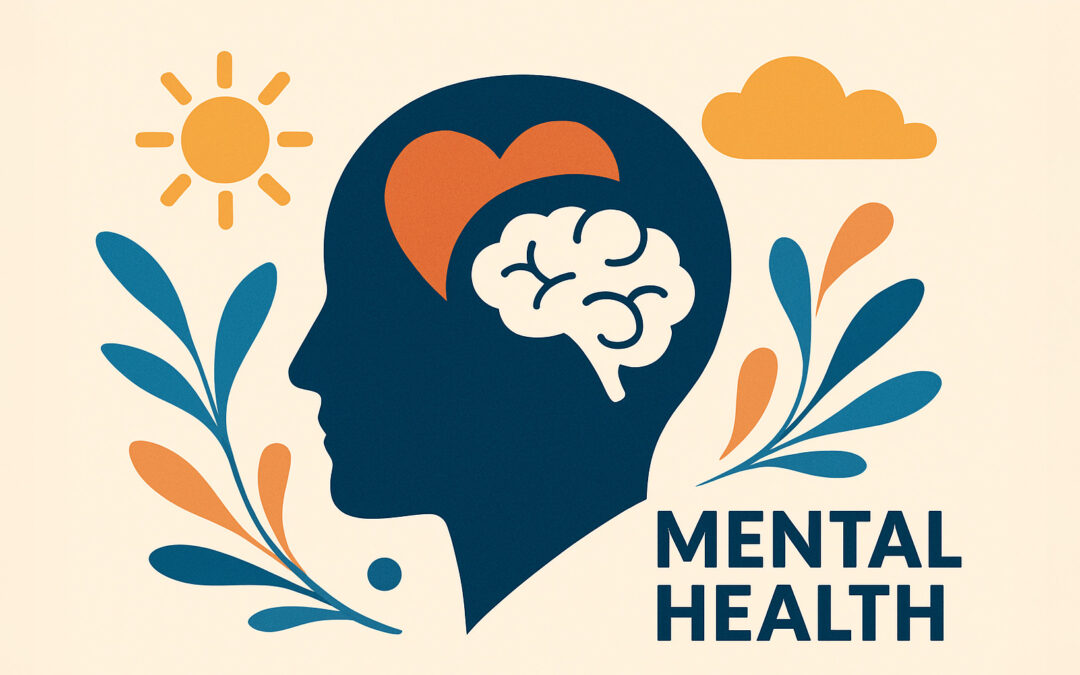Life in Randpark Ridge is vibrant, fast-paced, and full of responsibilities. Many of us juggle demanding careers, raising families, maintaining households, and staying involved in community life. While these roles are rewarding, they often leave little time for rest and recovery. This October, as the world marks World Mental Health Day, it’s worth pausing to reflect on the importance of caring for our own mental wellbeing.
Why Mental Health Matters
Mental health isn’t just the absence of illness — it’s the ability to cope with stress, stay productive, and build strong relationships. According to the World Health Organization, one in four people will experience a mental health challenge in their lifetime. In South Africa, high stress levels, long commutes, and economic uncertainty all contribute to rising cases of burnout, depression, and anxiety.
For professionals and parents alike, the costs of neglecting mental health can be significant: reduced concentration at work, strained family relationships, sleep disturbances, and physical health problems. On the other hand, maintaining good mental health supports resilience, sharper decision-making, and a stronger sense of community connection.
The Challenges We Face
- Work–Life Imbalance: Long working hours and “always-on” digital culture blur the line between office and home.
- Family Pressures: From school runs to extracurricular activities, parents often prioritise children’s needs over their own self-care.
- Economic Stress: Rising costs of living put added pressure on households, fuelling anxiety and worry.
- Isolation: Ironically, busy lives can leave little time for meaningful adult friendships or neighbourly connection.
Coping Techniques & Practical Steps
- Set Boundaries Between Work and Home: Remote and hybrid work have made it easy for emails and WhatsApp groups to spill into family time. Try creating a “shutdown ritual” at the end of the day — such as closing your laptop, going for a short walk, or changing clothes to symbolise the shift from “work mode” to “home mode.”
- Prioritise Sleep Hygiene: Good-quality sleep is the single most effective stress reset. Aim for 7–8 hours, and keep your bedroom a screen-free zone. Dimming lights an hour before bed or keeping a consistent bedtime routine can improve sleep quality, and families can support one another by respecting quiet time in the evenings.
- Move Daily – Even in Small Ways: Exercise doesn’t need to mean hours in the gym. A brisk walk through Randpark Ridge, gardening, or playing soccer with your children provides a natural mood boost. Commit to just 20–30 minutes a day, and treat it as non-negotiable “mental health time.”
- Talk Openly About Mental Health: Breaking the stigma starts at home. Encourage family members to share how they’re really feeling — not just “fine” or “busy.” Sometimes a 10-minute chat with a neighbour can be just as grounding as a counselling session.
- Practice Mindfulness & Stress Management: Deep breathing, meditation apps, or journaling can calm a racing mind. Even a short pause before a meeting or while waiting in traffic can become a mindful reset. Parents can model these habits for children, turning them into lifelong coping skills.
- Make Time for Joyful Activities: Schedule fun the way you schedule meetings. Reading, cooking, or creative hobbies nourish the mind. For families, plan “tech-free” hours where everyone puts devices down and spends time together.
- Stay Connected: Strong social ties are protective against anxiety and depression. Make the effort to connect with neighbours, attend community events, or simply greet people during walks. Small acts of connection build a buffer against isolation.
- Seek Professional Help When Needed: There’s strength in asking for support. South Africa has a growing network of psychologists, counsellors, and helplines. Medical aids now recognise mental health as essential, with many offering cover for therapy sessions. If you or a loved one is struggling, early intervention can prevent challenges from becoming overwhelming.
Building a Supportive Community
Our neighbourhood thrives when residents look out for one another. A simple greeting at the boom gate, checking in on a neighbour, or creating informal support groups can go a long way in combating loneliness. Mental health is not just an individual responsibility — it’s a collective investment in a healthier, more resilient community.
This World Mental Health Day, let’s remind ourselves that strong minds build strong families and strong communities. By making space for self-care and supporting each other, Randpark Ridge can continue to be more than a suburb — it can be a place where wellbeing is prioritised and balance is possible.

